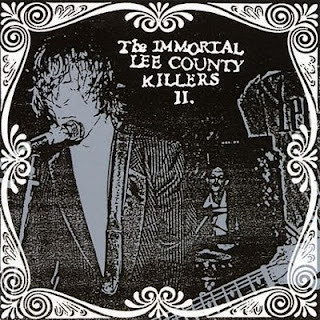V2.50
Canada’s Voivod has been around for so long that it’s easy for heavy metal fans to overlook these ancient mariners of the genre. Voivod has consistently evolved as a band over the past twenty years, incorporating progressive-rock elements into the band’s unrelenting sonic overkill. The resulting music is often challenging but never dull. During the mid-to-late-‘90s, Voivod hit a creative brick wall and the remaining band members just gave up in 2001.
Sometimes all it takes is a different perspective to put a band back on track, though, and that seems to be the case with The Multiverse (Chophouse Records), Voivod’s “comeback” album. With three-quarters of the original band reuniting for another go at the brass ring, and with former Metallica bassist Jason Newsted helping out, the band sounds re-energized and ready to take on the legion of nu-metal poseurs that have appropriated all or part of the Voivod sound.
The Multiverse offers vocalist Denis “Snake” Belanger’s best set of songs in years, obtuse, imagery-laden lyrics that require your full attention and repeated listening. Guitarist Denis “Piggy” D’Amour shreds the strings with brutal grace and drummer Michel Langevin seems to have found the perfect foil in Newsted, the pair’s explosive rhythms guaranteed to bounce around your skull for a while even after you turn off the stereo. There’s not another band that constructs songs the way that Voivod does, either. Eschewing the ball-peen-hammer-to-your-frontal-lobe method practiced by many metal bands, Voivod manage to blend melody and madness together to create something entirely new. The band throws chunks of classic metal, thrash, industrial noise, psychedelica and hardcore punk into the blender, adds literary influences like Michael Moorcock and J.G. Ballard, and begins slicing-and-dicing.
The Multiverse is rich with dagger-like riffs and nuclear rhythms; Belanger’s gravel-lined vocals perfect for Voivod’s aural assault. “Real Again?” marchs to a martial beat, D’Amour’s stellar guitar work representing the scythe while Newsted’s bass brings the hammer down on your noggin. “I Don’t Wanna Wake Up” sounds like the 13th Floor Elevators on adrenaline and amphetamines while the nightmarish title cut opens with a recurring, echoed guitar that pounds you into submission so that by the time the band kicks in loudly and “Snake” starts howling. you’ve entered a dervish-like trance. “Reactor” burns brighter than a supernova, shimmering guitars stabbing through the mix and punctuating Belanger’s best Johnny Rotten vocalese. With The Multiverse, Voivod returns to show the young pups how it’s done, creating intelligent heavy metal for the discerning fan.
Nothing could prepare even the most jaded music fan for the musical behemoth that is the Immortal Lee County Killers. Roaring out of Alabama like a drunken redneck with a trunk full o’ shine and dangerous thoughts of a felonious nature, the duo’s second album, Love Is A Charm of Powerful Trouble (Estrus Records) offers a unique and somewhat mystical perspective on romance. Guitarist “El Cheetah” and drummer “J.R.R. Token” bang out their fractured electric blues with a passion and aggression that similar outfits like the Soledad Brothers or the White Stripes could never hope to match, pairing punk rock attitude with the nightmarish quality of the best blues.
The Immortal Lee County Killers have built their sound upon the Mississippi blues tradition. Smashing together the best of the Delta and Hill Country styles, the Killers have created a literal Frankenstein of the blues that possesses the heart of Howlin’ Wolf, the brain of Willie Dixon and the soul of Son House, the monster haunted by the Johnson’s demons (Robert and Tommy). El Cheetah’s jagged-edge guitar style cuts and bruises like a broken bottle, reinventing songs like R.L. Burnside’s “Going Down South” with haunting vocals and a violent beat while Token’s staccato rhythms drive the title cut, “Love Is A Charm,” towards the insane edge of what society considers “polite.” After the weary “Truth Through Sound” lulls you into an uneasy treaty with the band, the Killers come out with punches flying, the traditional blues number “Rollin’ And Tumblin’” cold-slapping the listener back to cruel reality.
To be honest, neither Voivod nor the Immortal Lee County Killers create what you could call “gentile” music, meant to be purchased, consumed and discarded with yesterday’s trends and fashions. Both bands knock on the door of propriety, breaking through the barriers of what has been and what could be. While Voivod mines the heavy metal vein with its futuristic soundscapes and tone poetry, the Immortal Lee County Killers are possessed by the spirits of a thousand and one bluesmen, the talented duo ignoring critics and purists alike to blaze their own trail across the blues horizon.
LIFE DURING WARTIME
A number of musicians have decided that the best way to protest the war in Iraq is through song, consequences be damned. Of course, none of them are the Dixie Chicks, either – rock ‘n’ roll’s grand tradition of dissent is an accepted facet of the music while Nashville’s fealty to blind patriotism is sorely tried in times of disharmony. Check ‘em out for yourself online, since it’s doubtful that any of these tunes will be released on CD.
The Beastie Boys’ “In A World Gone Mad” is a brief, funky rant with an infectious beat and rapid-fire lyrics. Former Rage Against the Machine frontman Zach de la Rocha, teams with DJ Shadow for the blistering “March of Death,” de la Rocha spitting words like an AK-47 while Shadow drops beats like bombs from the belly of a B-52. Lenny Kravitz’s boisterous “We Want Peace” echoes the Clash’s best work and is available exclusively from the Rock The Vote web site (www.rockthevote.org) while John Mellencamp’s folkish “To Washington” reminds me of Phil Ochs or Pete Seeger. (View From The Hill, February 2003)



No comments:
Post a Comment